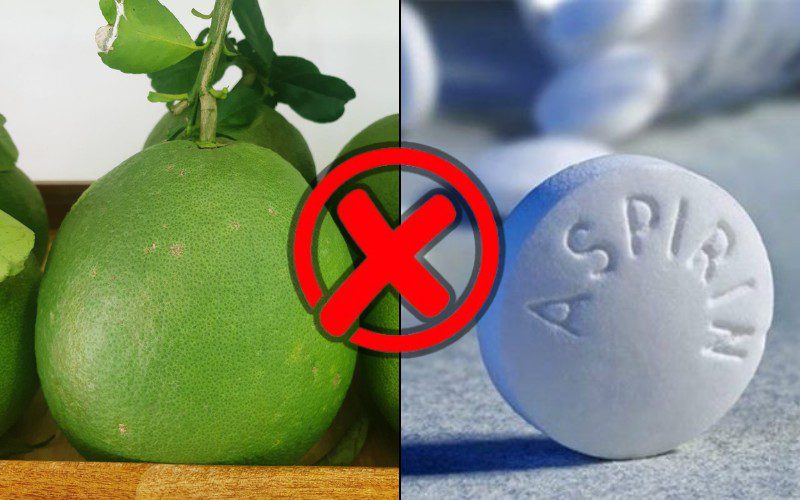Grapefruit is one of the popular fruits because of its delicious taste and high nutritional value. Nutritionists often encourage people to consume this fruit regularly to provide essential nutrients to the body, especially vitamin C. Let’s find out what the benefits of eating grapefruit are in the following article with Kamereo!

Nutritional components of grapefruit
Grapefruit peel contains a variety of important compounds such as Flavonoids, Ascorbic Acid, and Carotenoids. These substances play a crucial role in antioxidant, anti-inflammatory, and preventing the development of atherosclerosis in the body. Studies also suggest that Ethanolic extract from grapefruit peel may be beneficial to human health.
In particular, in 100g of grapefruit contains the following nutritional components:
|
Nutritional components |
Amount |
|
Water |
88,1g |
|
Calories |
42 kcal |
|
Protein |
0,77g |
|
Fat |
0,14g |
|
Carbohydrate |
10,7g |
|
Sugar |
6.89g |
|
Calcium |
22mg |
|
Magnesium |
9mg |
|
Phosphorus |
18mg |
|
Potassium |
135mg |
|
Vitamin C |
31.2mg |
Grapefruit segments are a source of valuable nutrients such as Vitamin C, Potassium, and fiber. According to health experts, grapefruit provides more than 15 types of vitamins and minerals beneficial to health, while supplying few calories, helping to control weight when consumed.
What are the effects of eating grapefruit?
With its high nutritional content, eating grapefruit regularly brings many benefits to health. Here are some of the benefits of grapefruit:
Boosting the immune system
Grapefruit is known for its high content of Vitamin C, providing strong antioxidant abilities, helping to protect cells from the harmful effects of bacteria and viruses. Therefore, this fruit is one of the good choices for boosting the immune system. Furthermore, Vitamin C in grapefruit also supports the rapid recovery process after a cold.
In addition, grapefruit also provides many B vitamins, Vitamin A, zinc, copper, and iron. The combination of these nutrients helps enhance immune function, maintain skin health, and support the body in fighting against various infectious diseases and other inflammatory issues.

Reducing fatigue
Grapefruit also has the ability to help the body overcome fatigue in life due to the presence of Nootkatone. This is a rare compound that can improve energy metabolism in the body by activating AMPK, helping to improve endurance and keep the body in good condition.
Reducing appetite
Nutrition experts also recommend consuming grapefruit for dieting regimes. The aroma of essential oils in this fruit can reduce appetite. In particular, consuming grapefruit can also stimulate the production of Cholecystokinin Hormone – a type of hormone like appetite-suppressing compound by regulating digestive fluid. Therefore, supplementing grapefruit into your diet can help you feel full faster and limit the accumulation of excess energy causing overweight.

Treating indigestion
The components in grapefruit play a role in improving the circulation of digestive fluids. This soothes the secretion activity of the intestines, helping the digestive system to function efficiently. Moreover, this fruit also contains a high amount of fiber and plant powder, providing the ability to limit the accumulation of waste inside the intestines and regulate the body’s excretion cycle.
Supporting the treatment of flu, fever, and malaria
Grapefruit is known for its ability to soothe the feeling of heat for people with high fever. The compounds in grapefruit not only support boosting the immune system and fighting colds but also assist in treating flu by reducing acidity.
Naringin – a flavonoid component in grapefruit has been shown to enhance the immune system, promote digestion. Furthermore, this component also has antiviral, antifungal, antibacterial, anti-cancer, and anti-inflammatory properties.
Scientific studies have shown that grapefruit contains a lot of natural Quinine – a beneficial substance in the treatment of malaria. Specifically, this substance is an alkali used in the treatment of diseases such as malaria and systemic lupus erythematosus.

Lowering blood sugar
Grapefruit contains Naringenin which can control blood sugar levels and increase sensitivity to Insulin. Therefore, eating this type of fruit helps reduce Glucose levels and effectively lowers blood sugar.
Skin beauty, hair growth stimulation
Just half a grapefruit can provide up to 28% of the daily required amount of Vitamin A for the body. Accordingly, this type of Vitamin has the ability to stimulate the production of healthy cells to strengthen the skin barrier against external factors. Grapefruit also has a high water content, helping to provide enough water for the body and balance natural moisture.
Moreover, Vitamin A also stimulates hair growth, prevents hair loss, nourishes hair follicles, and improves scalp condition. Grapefruit is also known as a good choice for people with acne and oily skin problems.

Who should not eat grapefruit
Grapefruit contains a large amount of fiber and vitamin C, so people with problems such as: gastric ulcers, colitis, or pancreatitis should limit eating grapefruit. These substances can increase acidity in the stomach, causing a burning sensation and exacerbating inflammation. In addition, nutrition experts also recommend that the following groups should not eat grapefruit:
- People who are hungry should not eat grapefruit because the amount of Acid in the fruit can be harmful to the stomach.
- After using alcoholic beverages such as: wine, beer,… and cigarettes. The reason is that the compound Furanocoumarin in grapefruit increases intestinal enzymes and the toxicity of Ethanol in alcoholic beverages harmful to health
- Grapefruit is cold in nature so it is not suitable for people with poor digestion or diarrhea.
- People using blood pressure medication should consider before eating grapefruit to avoid the drug losing its effectiveness.
- People diagnosed with high blood lipid levels should not eat grapefruit because it can cause muscle pain, even damage to the kidneys.

Note when using grapefruit
Grapefruit brings many health benefits, but it can reduce or eliminate the effectiveness of medication. Below are some types of medications that should not be taken before or after eating grapefruit:
- Medications for treating arrhythmias Pacerone and Cordarone (Amiodarone).
- Some high blood pressure medications Procardia and Adalat CC (Nifedipine).
- Some antihistamines such as: Allegra (fexofenadine), loratadine, Cetirizine, Fexofenadine,…
- Some statin drugs to reduce cholesterol levels such as: Zocor (Simvastatin) and Lipitor (Atorvastatin).
- Some immunosuppressive drugs such as: Neoral capsules, Sandimmune, oral solution (Cyclosporine),…
- Some corticosteroids for treating Crohn’s disease or ulcerative colitis such as: Entocort EC and Uceris tablets (Budesonide).

Summary
Hopefully, this article helps you know what the benefits of eating grapefruit are. This is a fruit with high nutritional content, especially Vitamin C and Potassium, bringing many health benefits. Follow the Health and Beauty section for more useful nutritional information!
Read more:






